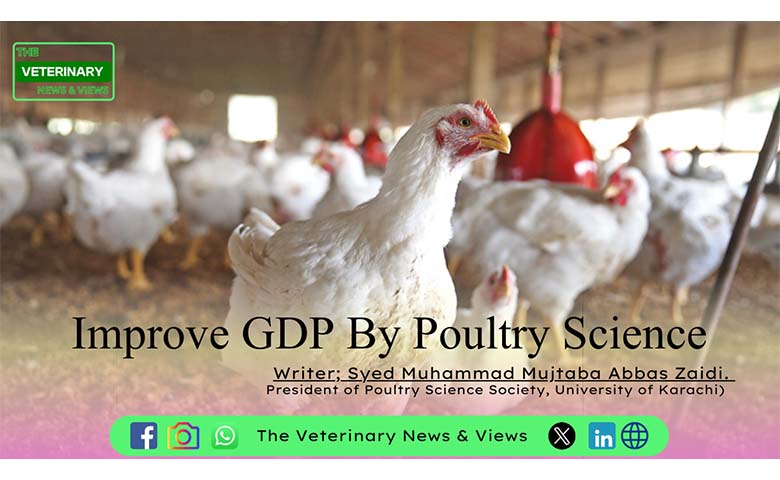Writer; Syed Muhammad Mujtaba Abbas Zaidi.
Student of Department of Poultry Science, University of Karachi,
President of Poultry Science Society, University of Karachi)
mujtubaabbas@gmail.com +92 317 1202520

The global broiler meat trade has witnessed significant fluctuations in recent years, with notable trends emerging in import and export volumes of poultry meat. A closer examination of the half-yearly records of import volumes reveals that Japan tops the list, importing approximately 1075 metric tons of broiler meat as of June 2024. In contrast, South Africa ranks 10th, with imports totaling around 385 metric tons during the same period.
A single country's poultry meat exports can generate revenue equivalent to the GDP of another nation, revealing the untapped economic potential for developing countries
On the other hand, the export volume of broiler meat worldwide in 2023 showcases Brazil as the leading exporter, with a staggering 4,750 metric tons. Canada, ranking 10th, exported around 115 metric tons. Notably, Brazil’s poultry meat exports generated revenue exceeding $9 billion in 2023, a figure equivalent to the GDP of the Maldives.
This awakening movement has motivated developing countries with the potential to produce and export poultry meat. However, they have previously neglected this opportunity. As an example, I highlight that a single country can generate revenue equivalent to the GDP of another country through poultry meat exports. This stark reality underscores the significant economic benefits that developing countries have been overlooking.
Moreover, the average price of imported poultry meat is 40% higher than the actual price due to import duties, value-added tax (VAT), customs, and other charges. This disparity presents a compelling case for developing countries to invest in their poultry farming industries.
By establishing poultry farms, countries can minimize costs by up to 40% and create job opportunities in various sectors, including feed mills, farms, hatcheries, and slaughterhouses. This approach can significantly contribute to national economic growth and improve food security.
To realize the full potential of the poultry industry, it is essential to develop a skilled workforce equipped with the necessary knowledge and expertise.
Establishing degree programs in Poultry Science can provide professionals with the required skills to drive the industry forward. The University of Karachi’s 4-year degree program in Poultry Science, launched in 2022, is a step in the right direction.
As a student of the University of Karachi’s BS Poultry Science program, I am committed to contributing to the growth and development of Pakistan’s poultry industry. I believe that investing in poultry science education can have a profound impact on national health and economic wealth. I urge developing countries to prioritize the establishment of such programs, creating awareness among youth about the importance of this field and its potential to drive national progress.
By embracing the poultry industry and investing in education, we can unlock the doors to economic growth, improved food security, and a healthier nation.